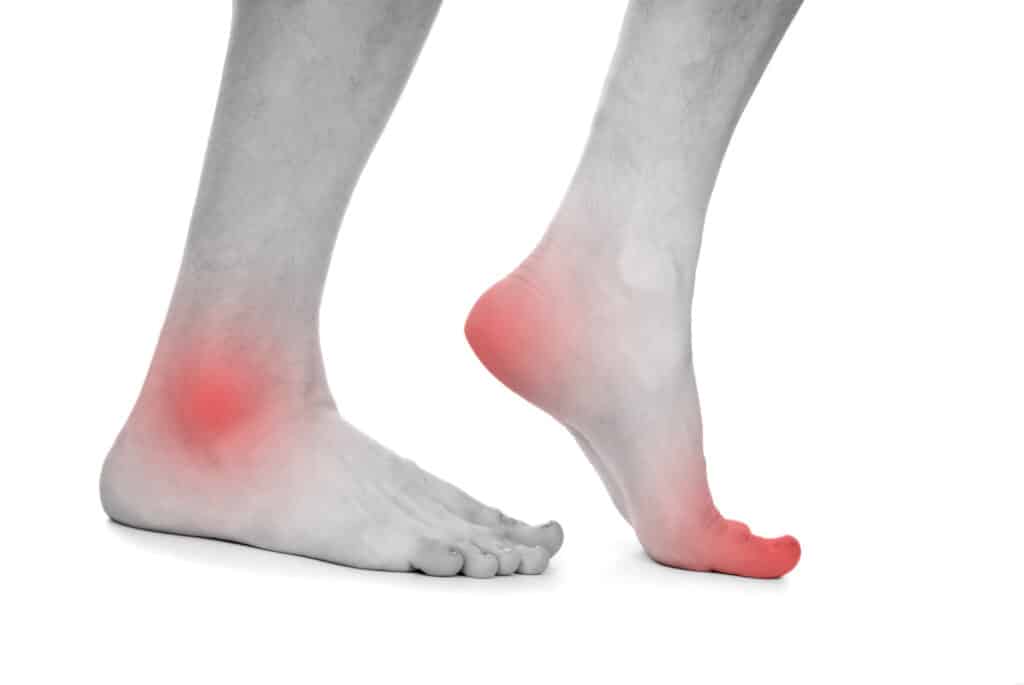If the first few steps you take in the morning are painful, you might be experiencing plantar fasciitis. It’s one of the most common causes of foot pain, with over two million people seeking medical treatment each year. Many people typically seek treatment after having months or years of heel pain.
The stabbing pain that is felt is caused by inflammation of a band of tissue known as the plantar fascia that connects the heel bone to the toes. The pain is normally localized near the heel but can be felt anywhere along the plantar fascia ligament. The pain tends to be worse first thing in the morning and after long periods of sitting or standing. When there is no weight put on the foot, the ligament shortens and tightens,
There are many reasons why one might develop plantar fasciitis. Some of these factors include being overweight, being on your feet for extended periods and wearing shoes with inadequate support and high impact sporting activities. Also, flat feet or high arches, excessive pronation (when the foot rolls severely inward when walking) or wearing high heels regularly can be aggravating factors.
To diagnose plantar fasciitis, a physician will examine the foot, including looking for areas of tenderness, the height of the arch and ankle mobility. Imaging tests such as X-rays or MRIs may also be used to rule out other potential causes of foot pain, such as fractures or arthritis.
There are three main ways to treat plantar fasciitis:
- Stretching the plantar fascia and the muscle group in the back of the leg,
- Wearing good quality and supportive shoes or orthotics,
- Reducing inflammation.
If plantar fasciitis remains untreated, chronic heel pain can develop with irreversible consequences including scarring and thickening of the plantar fascia at its origin in the heel. The ligament could also become partially or completely ruptured if a person with plantar fasciitis continues their high-impact activities.
Stretching is the single most important thing to do to eliminate and prevent pain. Physicians also recommend taking a break from high-impact exercises like running and switching to low-impact exercises like swimming or yoga. Over-the-counter anti-inflammatory medications such as ibuprofen and the use of ice and massage can be used to reduce inflammation and pain. If pain continues it is important to see your physician for a more extensive treatment plan that could include steroid injections and sometimes surgery. More than 90 percent of people with plantar fasciitis experience a significant reduction in pain after less than a year of treatment
The feet are relatively small body parts that experience significant pressure and stress daily. For that reason, it’s important to make sure your feet stay healthy and be aware of the symptoms of foot conditions such as plantar fasciitis.


